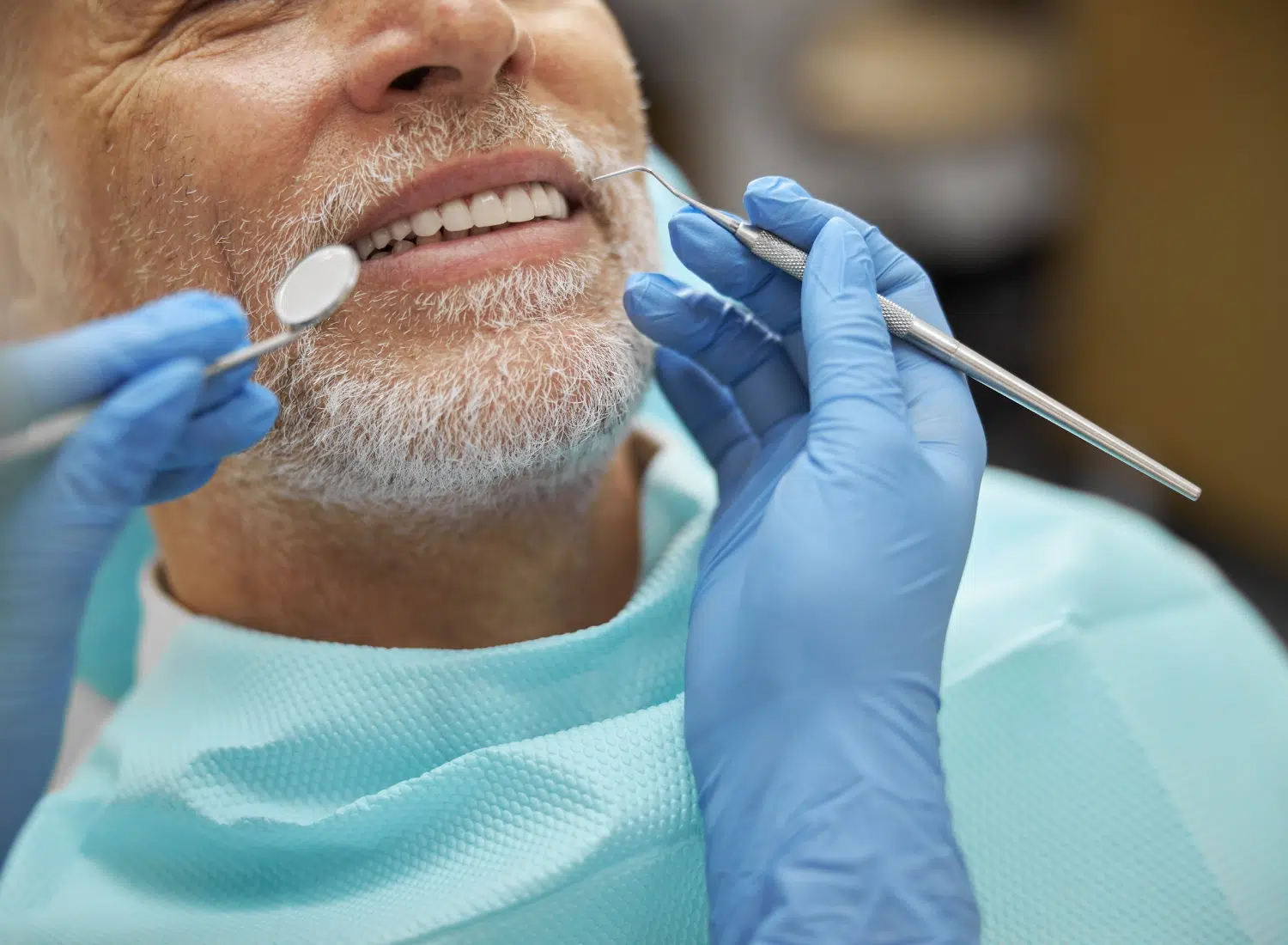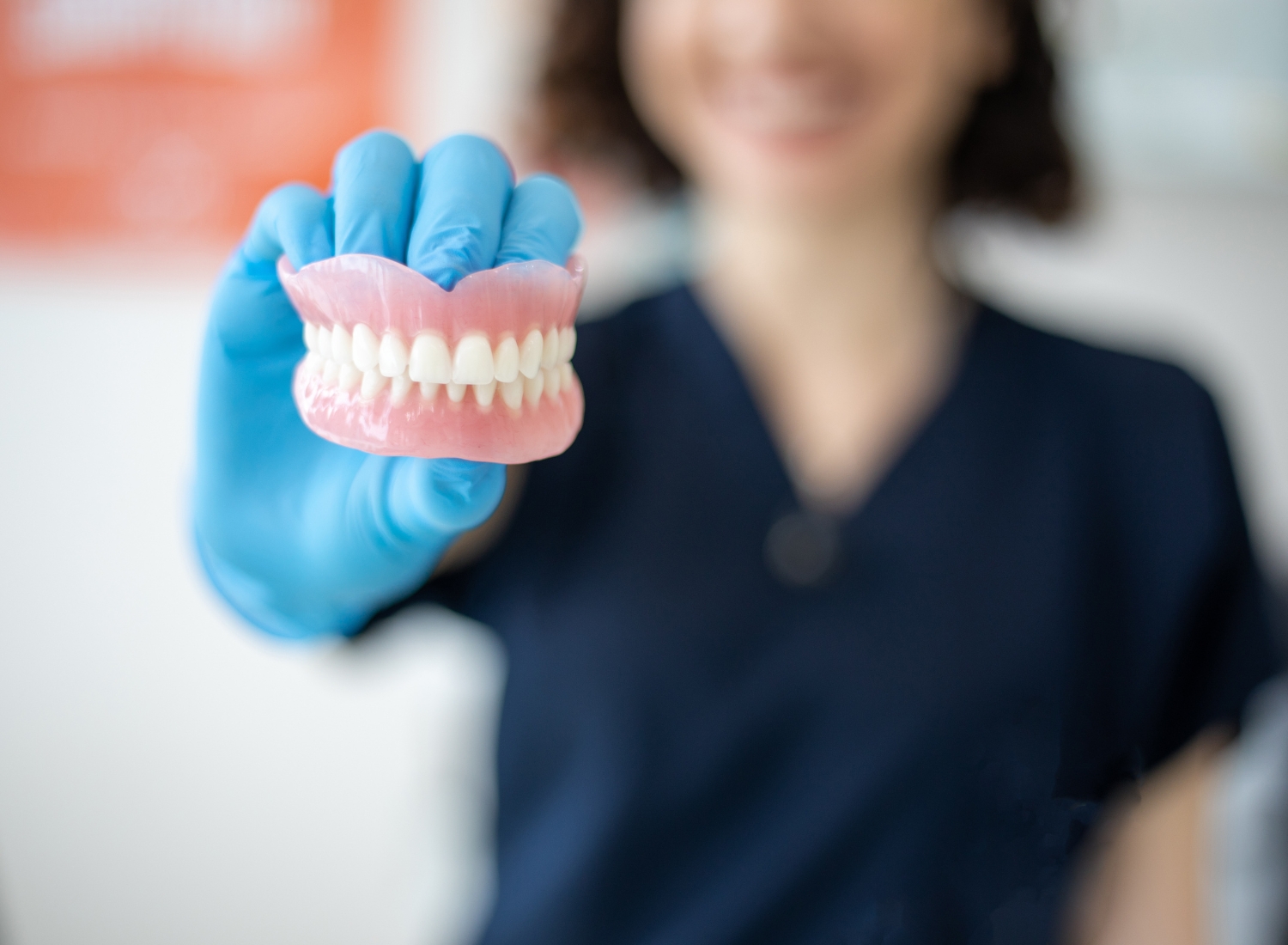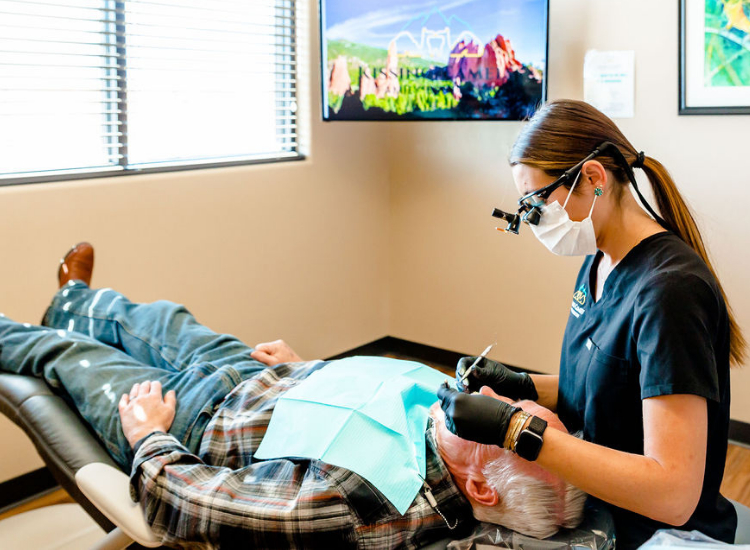There are many misconceptions about dentures, including that they’re only for elders. This couldn’t be farther from the truth. Many don’t realize that people of all ages can benefit from dentures. Dentures act as a replacement for natural teeth. To help you decide if dentures are the right solution for your missing teeth, Dr. Cody Boals, a dentist in Colorado Springs, CO, answers the following dentures FAQ.
What Are Dentures and How Are They Supposed to Work?
Dentures are a prosthesis used to substitute the missing teeth of a patient. This prosthetic consists of artificial teeth and gums that are tailored and fitted to each smile. Dentures are not placed to the jaw bone, unlike dental implants. It is essentially making it easier to clean and preserve.
If you’ve experienced tooth loss because of periodontal disease, tooth decay, injury, etc., there are several benefits to choosing dentures. One of the most common advantages of dentures is the boost in self-esteem and appearance. Other benefits directly affect the oral health as dentures support the overall mouth structure, including facial muscles, speech, and functionality, such as eating.
What Are The Different Types of Dentures?
Dentures used to consist of plastic or porcelain, but today most of them are made of a strong resin material that better looks and feels like natural teeth. A similar resin material is made up of the gum portion of dentures that is for a better fit on the gumline. Additionally, there are various types of dentures, including full and partial, and it will be possible for your dentist to determine which option is right for you.
Complete Dentures
This alternative, also known as a complete denture, is used when all or almost all of the teeth are missing. To replace all the natural teeth and fit the entire surface of the gums, a prosthetic will be made. Once this is completed, the denture will fit snugly along the gum line. However, the dentures are easily removable. Your Colorado Springs dentist may recommend getting a tooth extraction if they feel that you would benefit from complete dentures.
There are two types of full or complete dentures, conventional and immediate. After your mouth has healed from any tooth extractions, conventional dentures are positioned. This means that the patient, during the healing period, which can vary in time, you may be without teeth. The prosthetic is able to fit perfectly by waiting until the tissue in the mouth is completely healed.
Right after the remaining teeth are removed, instant dentures are placed. The dentist will take preliminary measurements so that the patient will have her new teeth on the same day. After any extractions, this option can help support the jawbone and regulate bleeding. It can change the shape or ridge of the gum line slightly when the mouth heals after the extraction, meaning the surface of the denture may no longer fit as it is meant to. While this may seem like a small problem, it may require realignment, modifications, or even a whole new denture production. You may be without teeth for a couple of days when this occurs.
Partial Dentures
When a patient has only a few missing teeth, Dr. Boals may recommend partial dentures. The existing teeth act as support structures, similar to dental bridges. Partial dentures consist of the required replacement teeth attached to a gum-colored base, almost like a teeth-attached retainer. Dentures are secured in the mouth by attaching either the plastic of the denture or a metal framework to adjacent existing teeth. Partial dentures are readily removable, just like full dentures.
What Should I Expect When Getting Dentures?
Your journey to a beautiful, functioning smile will start after a denture consultation with your dentist in Colorado Springs, CO. The next step is to prepare the mouth for any tooth extractions or procedures that need to be performed prior to measurements or fitting. Measurements will be taken beforehand if you get immediate dentures, so the prosthetic will be ready at your appointment for preparation.
Your dental impressions will be sent to the laboratory where the dentures will be made by your choice of size, color, and shape. Depending on factors like urgency and complexity, the laboratory can take anywhere from 1-6 weeks to generate the prosthetics. You will come in for your fitting once your dentures are ready.
Your restorative dentist will have you try the dentures on during the fitting. This allows them to make sure the dentures fit accordingly. Our Kissing Camels Family Dentistry team will also make sure to show you how to remove and clean your dentures properly. You will probably be advised to wear them until your follow-up appointment, where any additional changes will be made. As previously mentioned, this step will occur during the preparation appointment if you are receiving immediate dentures, and adjustments will be made after your mouth has healed.
How Do I Care for Dentures?
Our friend Dr. Hoang, a restorative dentist in Bethlehem, GA, agrees that any patient who is new to dentures will have an adjustment period. At first, dentures may feel very weird as there is now a foreign object in your mouth, resulting in talking and eating difficulties, besides physical adjustments, figuring out how to take care of your dentures.
A common misconception about dentures is that you don’t need to clean them with real teeth. On the contrary, it is critical to take care of your dentures because plaque, tartar, and harmful bacteria can still build up on the teeth. Your dentures need to be cleaned every day, no matter what type of prosthetic you have. Even though they’re removable, the dentures should remain in your mouth for a certain amount of time. Your Colorado Springs dentist will inform you of the dos and don’ts of dentures. Here is a rough guideline for caring for your dentures.
To prevent dental problems such as tooth decay or gum disease, it is important to follow these steps:
- Brush your dentures and gums with a very soft toothbrush and toothpaste
- Remove any bacteria and debris while your dentures are outside your mouth.
- Soak your dentures in denture solution or clean water anytime they are out of your mouth.
How Long Do Dentures Last?
When correctly taken care of, dentures typically last for about 5 to 7 years. Over time, they will naturally wear the base on which the artificial teeth sit and need to be revived. Your mouth will naturally change as you grow older, and your dentures may not fit properly. Fortunately, without damaging the teeth, the base is very simple to fix.
However, there are ways of maximizing the lifespan of your denture that go beyond daily cleaning. When handling the prosthetics, it is wise to be gentle as they can break easily if dropped. You should be aware, too, of making sure they never dry out. Soaking your dentures in solution when you’re not wearing them will ensure that your dentures do not dry out. They can also be placed in warm, not hot water because the dentures’ shape can be warped or ruined by hot water. Dr. Boals says dentures are not cheap to replace, so you should take good care of your dentures if you want them to last as long as possible.
Replacing missing teeth is crucial to good oral health, whether it’s with dentures or dental implants. If you’re interested in restorative dentistry solutions, contact Kissing Camels Family Dentistry for a consultation. Our team is happy to answer any questions or concerns you may have.










